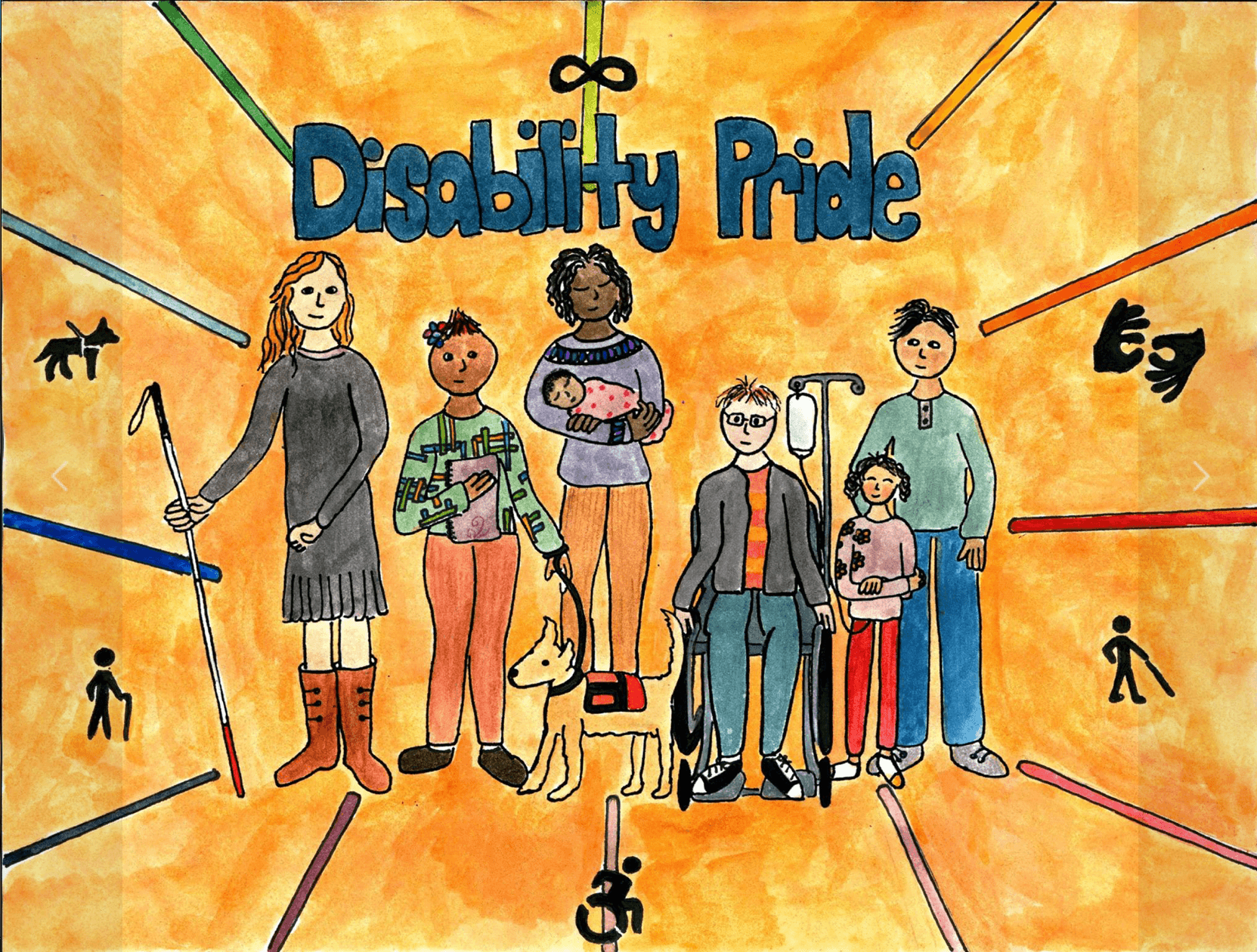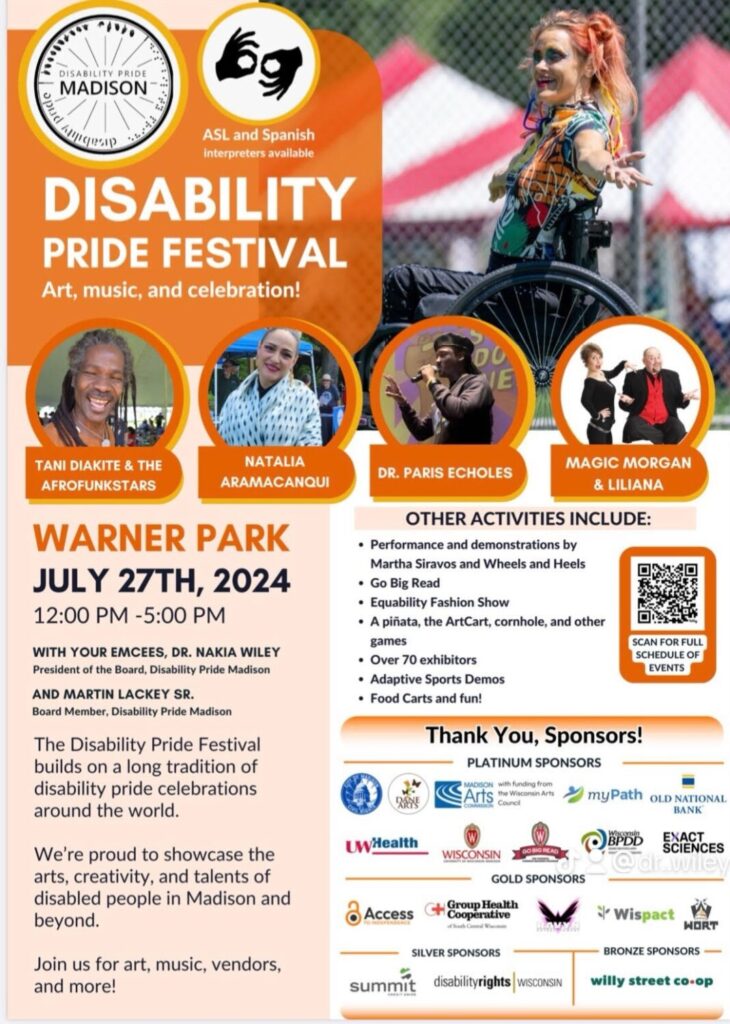
Disability Pride Madison will host its 11th annual Disability Pride Festival at Warner Park on Madison’s North Side on Saturday, July 27.
Festivities will take place from noon-5 p.m. and will showcase the creativity and talent of Madison’s disabled community. The day will feature performances and demonstrations from Martha Siravos and her adaptive dance organization Wheels and Heels, an equability fashion show, adaptive sports demos, the work of over 70 exhibitors, food trucks, and much more.
Disability Pride Madison Board President Dr. Nakia S. Wiley will be emceeing the day’s events along with fellow board member Martin Lackey Sr. Disability Pride Madison is a local nonprofit that works to empower the city’s disabled community and “show the able-bodied community what [they have] to offer.”
“We’re gonna party like it’s 1990,” Wiley declared, referencing the year that the Americans with Disabilities Act (ADA) was passed, which protects disabled individuals from discrimination in schools and in the workplace.
Living with disabilities both physical and mental, Wiley emphasized the importance of uncovering the role that ableism can and does play in our everyday lives, and challenging it. “For the Black community growing up, they didn’t push disability—that wasn’t a word in our community,” she explained. “So this is what led me to fight and advocate for the disabled community.”
As a special ed teacher, Wiley has seen firsthand how ableist systems affect disabled students. Since moving to Madison from Chicago in 2016 to be closer to her aunt and grandmother, Wiley has spent years serving the Madison Metropolitan School District’s early childhood and special education sectors. “I want to make sure everyone is equipped to support our students who have an IEP or a 504,” she said. “I’m thinking about those who are coming after me, the younger generation.”
Upon moving to Madison, Wiley was eager to get involved in the city’s various communities. She soon got joined the Madison School and Community Recreation (MSCR) after school program, and found passion in their adapted recreation programs for individuals of all abilities.
Since then, she’s been an integral part of a number of communities, but she feels particularly kindred to those who share the experience of having disabilities. “Being in the disabled community is home,” she said. “That’s my tribe.”
In addition to being Disability Pride Madison’s board president, Wiley coordinates a number of different programs, including the Anti-Racism Evaluation and Individualized Education and the Special Education Assistance programs for MMSD.
At the heart of all of this work is empowering and supporting individuals with disabilities, educating others, and raising awareness: “So many people need to learn [about disabilities] and that’s the hard part,” she explained. [So many] people who live in fear try to label [people with disabilities] with all of these egregious terms that are harmful. It is about a call to action for everyone to come to gather.”
She emphasizes that this new level of understanding will lead to true equity, or “getting [people] what they need based on who they are.” “That means you need to know who a person is so that you can properly support them the best way you can with whatever resources that we have,” she said.
Disability Pride Madison’s joyful celebration comes at the heels of a local controversy earlier this month wherein UW-Madison un-enrolled a student from a pre-college program because of the institution’s inability to accommodate the student’s disabilities.
“We don’t want to be dismissed—we can’t dismiss anyone’s voice,” Wiley said of the situation. “So listen to the disabled community. Listen to their needs.”
For Wiley, the act of listening is crucial to building a Madison that is truly committed to disability justice. “When we look at our buildings [and programs], were they built for the disabled community?,” she asked. “[We need to] ensure that the voices of the disabled are at every table and decision-making process.”
While the Disability Pride Festival is just a day away, Wiley says that the organizers are still looking for volunteers to help ensure that the day runs as smoothly as possible. Volunteers who are able to provide physical labor such as heavy lifting and running (in case of emergency) to ensure community safety. “Be our hands, be our feet, be our eyes, and be our ears,” she said. “That’s what we need.”




